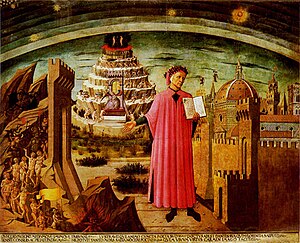 |
| "Dost thou think because thou art virtuous, there shall be no more cakes and ale?" "Twelfth Night" by Jan Steen, 1668. |
England at this time was in between its First and Second Civil Wars, during which the English Parliament had raised up an army against King Charles I, a king with strong ties to the Catholic Church, and a Catholic wife, Henrietta Maria of France. After the reigns of Queen Elizabeth and King James I, who ruthlessly punished Catholic recusants and their sympathizers, antipathy between Reformers, who were often in power before Charles became king, and Catholics was at an all-time high. As with everything during this period in English history, Christmas and a general reform of the festive calendar became entangled in the contentious and violent interactions of powerful religious and political entities.
In the sixteenth and seventeenth centuries, Christmas Day was less important than the feast of the Epiphany, or Twelfth Night. This holiday is the source for the name of Shakespeare's play Twelfth Night, or What You Will, and the play was often performed at the height of the revelry on this saturnalian feast day during which a "Lord of Misrule" would "turn the world upside down" and proclaim that gentlemen should wear pauper's robes, as well as doing hilarious things like putting his boots on his hands and his gloves on his feet. The play Twelfth Night is equally topsy-turvy, expressing what C. L. Barber calls a "festive pleasure in transvestism"--a form of socially-sanctioned transgression that remains provocative and fascinating today.
Shakespeare's play featured prominently in courtly celebrations of the Twelve Tide festival, the end of a festive season which actually would have begun with All Hallow's Eve. While this prominent subversion of order would have helped in many ways to consolidate the traditional roles and strictures of Elizabethan culture it temporarily suspended, Twelfth Night is not a simple play enacting a purely conservative and sin-alleviating social utility. Viola, the play's protagonist, is a young noblewoman who impersonates a younger boy in order to win the affections of her beloved Count Orsino. Orsino asks the cross-dressing Viola to woo the wealthy widow Olivia in order to endear him to her (Olivia, that is.) Oh, and all the female roles would have been played by boys.
Viola, then, appears onstage as a young boy pretending to be a young woman pretending to be a young boy, who is wooing an old woman in order to woo a middle-aged man. If this sounds confusing, then you're beginning to get it. C. L. Barber, in his book Shakespeare's Festive Comedy, writes that the sexual confusion in the play conveys "how much the sexes differ yet how much they have in common, how everyone who is fully alive has qualities of both." This is certainly not something the church authorities in Renaissance England (or today, for that matter) would have sustained.
Perhaps, though, this is something that the Twelve Tide revelers may have felt--even if they could not conceive of it as Barber has done--as they were celebrating their temporary license. The subversive impulse of the Christmas festival, then can be a move towards fullness, towards a more expansive view of human life--in addition to letting loose a little. Give Twelfth Night a read, or a viewing. Have a drink or two, enough to ask, as does Sir Toby Belch, "shall we make the welkin dance indeed? Shall we rouse the night owl in a catch that will draw three souls out of one weaver?" Most importantly during this year's Twelve Tide, make sure you take a break from shopping and sitting in traffic long enough to enjoy some festive Misrule!
